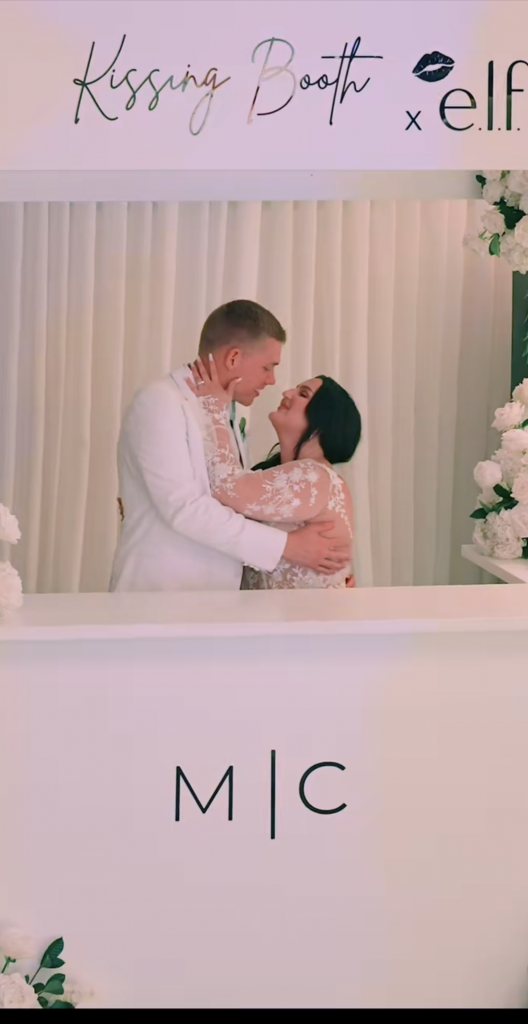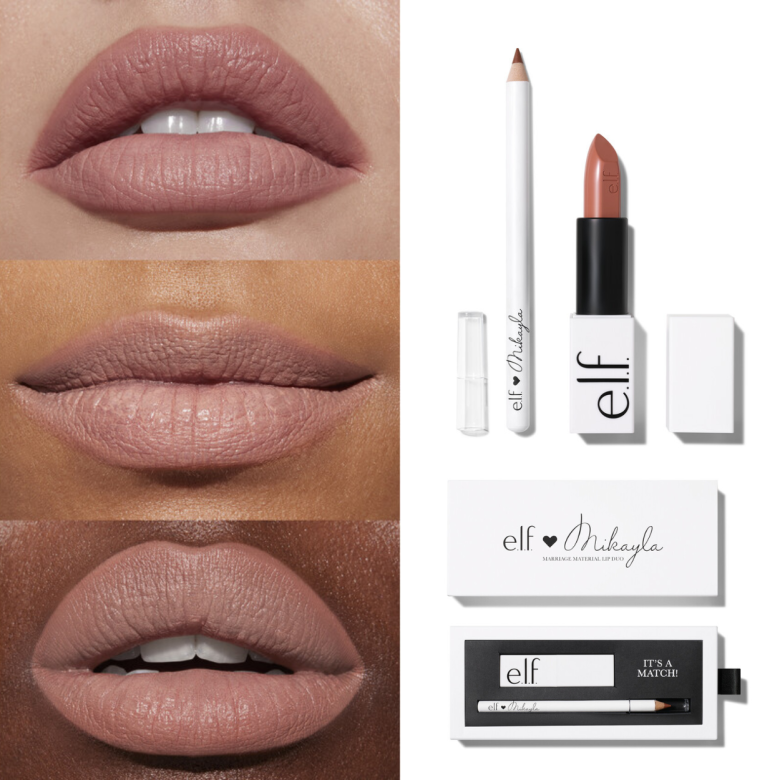Weddings have traditionally been celebrations of love, commitment, and unity. However, in the digital age, they have also become highly publicized events that blur the line between personal milestones and corporate marketing campaigns. More frequently, high-profile weddings come with brand sponsorships, turning intimate ceremonies into branded spectacles. From Kourtney Kardashian and Travis Barker’s Italian wedding sponsored by Dolce & Gabbana to beauty influencer Mikayla Nogueira’s collaboration with E.L.F. Cosmetics, sponsored weddings have redefined the way we perceive love stories in the social media era.
Kourtney Kardashian and Travis Barker’s wedding in Italy exemplifies the rise of brand-sponsored weddings. Their luxurious celebration was intensely sponsored by the fashion brand Dolce & Gabbana, with every aspect of the wedding showcasing the brand’s iconic designs. The couple, their children, and even their guests wore custom Dolce & Gabbana outfits throughout the event.
Social media was flooded with images and videos featuring the brand’s signature styles, from lavish gowns to tailored suits. The wedding doubled as a high-fashion campaign, with the couple’s special day serving as a runway for the brand. However, the brand’s involvement wasn’t without controversy. Dolce & Gabbana has faced significant backlash in recent years due to accusations of cultural insensitivity and problematic marketing campaigns. Some critics viewed the wedding sponsorship as an attempt by the brand to rehabilitate its image through association with a beloved celebrity couple.
Beauty influencer Mikayla Nogueira’s wedding to Cody Hawken also stirred debate about the commercialization of personal events. Her wedding, sponsored by E.L.F. Cosmetics, felt more like a brand activation event than a private ceremony to many of her followers.

Leading up to the wedding, E.L.F. released a limited-edition lipstick set inspired by Nogueira’s bridal look, which quickly sold out. The wedding itself featured a prominent E.L.F. Cosmetics booth leading some viewers to question whether the wedding was more of a business transaction than a celebration of love.

Adding to the controversy, some of Nogueira’s longtime childhood friends and hometown acquaintances were not invited. In their place were fellow influencers and content creators, some of whom she hadn’t met before. The invited influencers spent the day making “get ready with me” videos and live posting the ceremony which felt forced to many fans. This spectacle-driven atmosphere left some followers disillusioned, feeling as though they were watching a corporate-sponsored event rather than a heartfelt wedding.
For influencers and celebrities, sponsorships can significantly offset the high costs of luxury weddings. In exchange, brands gain exposure through social media posts, event coverage, and PR campaigns that reach millions of potential consumers. Weddings become immersive brand experiences, allowing companies to engage with audiences in a deeply emotional context.
Reactions to sponsored weddings are mixed. On one hand, some see these partnerships as smart business moves that allow influencers and celebrities to celebrate in style while minimizing expenses. On the other hand, critics argue that such weddings diminish the authenticity of what should be a deeply personal and meaningful event.
The rise of sponsored weddings raises important ethical questions about privacy, authenticity, and the commercialization of life’s most personal moments. For many, weddings are sacred events meant to be shared with close family and friends. But in the influencer age, the line between private celebration and public spectacle has become increasingly blurred.
Moreover, the cultural shift toward monetizing personal milestones reflects broader societal trends. Social media platforms encourage constant sharing, turning private lives into public entertainment. In this context, weddings are no longer just intimate ceremonies but brandable moments that can generate significant revenue.
For better or worse, the blending of personal milestones with corporate sponsorships reflects the reality of today’s influencer economy. While some may find this trend distasteful, others see it as a savvy business strategy that benefits both the couple and the brand.
Sources
“Makayla Wedding Finally Happened, It Was Sponsored by ELF Cosmetics and She Invited a Bunch of Influencers Including James Charles.” R/BeautyGuruChatter, n.d. https://www.reddit.com/r/BeautyGuruChatter/comments/14qzv4r/makayla_wedding_finally_happened_it_was_sponsored/.
Telegrafi. “Kourtney Kardashian and Travis Barker’s Wedding Is Sponsored by Dolce & Gabbana – a Deal That Will Bring Free Publicity to the Fashion House Hit by Controversy in Recent Years,” May 22, 2022. https://telegrafi.com/en/kourtney-kardashian-and-travis-barker%27s-wedding-is-sponsored-by-dolce-gabbana-in-a-deal-that-brings-free-publicity-to-the-fashion-house-hit-by-controversy-in-recent-years/.
Ware, Asia Milia. “First Comes Love, Then Comes Spon-Con.” The Cut, July 5, 2023. https://www.thecut.com/2023/07/everything-we-know-about-mikayla-nogueiras-wedding-drama.html.
“Who Paid for All the Opulence for Kourtney and Travis Wedding?” R/KUWTKsnark, n.d. https://www.reddit.com/r/KUWTKsnark/comments/12knn39/who_paid_for_all_the_opulence_for_kourtney_and/.


An interesting analysis. I do believe that weddings between celebrities have often been very commercialized events, even prior to the digital era. The types of wedding dresses and which designers made them, the drama that was generated for the newspapers. The intimate and loving aspect of such weddings tended to be low to begin with, as well as the number of high-profile divorces.
The new level reached thanks to the new influencer class and the even larger scale of marketing does make your analysis very much relevant, but insofar as it is a break with bygone eras that is difficult for me to see.
A great read and it gives insight into todays commercialized weddings. I do think however that the meaning of wedding is very different for a lot of people. I know couples that have gotten married simply to be able to make it easier to buy a house. Not everyone marries for love and personally I also don’t see myself needing to get married to show that I love someone.
So for some people it might be more outrageous to have a sponsored wedding than for others and I do think we will see it more and more in the future.